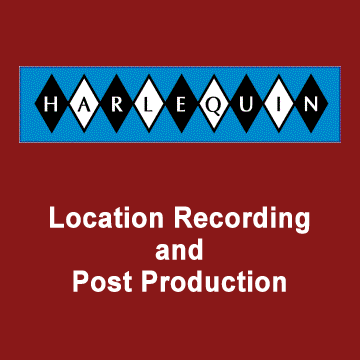Playlist 19 March 2023 |
|
Recording Details |
| Rhythm and Blues – Philip Sparke | Opening for weekly show Foden's Band MD: Michael Fowles - 2010 | 'Patrons' Choice III' - CD - Egon CD-SFZ154 - 2010 |
| Asturias - Isaac Albeniz arr. Klaas Van Der Woude | Brass Band Berner Oberland (Switzerland) MD: Corsin Tuor - 2020 | 'Fur Immer Uf Di' - CD - Gabriel Recording - 2020 |
| Judges of the Secret Court - Hector Berlioz arr. Frank Wright | Ransome Hoffman and Pollard Band MD: Dennis Masters - 1972 | 'Sounds of Brass Series Vol. 3 - Ransome Hoffman and Pollard Band' - Vinyl - Decca Recording SB303 - 1972 |
| Serenade from the Student Prince - Sigmund Romberg | National Band of New Zealand (New Zealand) MD: K.G.L. Smith - 1953 | 'The 1953 National Band of New Zealand' - Vinyl - His Master's Voice – MDLP 6055 - 1953 |
| Bravura - Peter Graham | Euphonium Soloist Aaron Van Derweele with the New York Staff Band (USA) MD: Ron Waiksnoris - 2008 | 'Ceaseless Service' - CD - Summit Records - 2008 |
| Dixieland Medley - Joseph Laube | Vocal Soloist Regina Mallinger with the Brass Band Obersterrich (Austria) MD: Hannes Buchegger - 2010 | 'Highlights from the European Brass Band Championships Concert 2010' - DVD - WOB 145 DVD - 2010 |
| Die Parade der Zinnsoldaten (Parade of the Tin Soldiers) op123 - Leon Jessel arr. Thomas Bidgood | Grimethorpe Colliery Band MD: Major Peter Parkes - 1996 | 'French Bon Bons' - CD - Chandos Recording CHAN 4542 - 1996 |
| Fill the World with Glory - Kevin Larsson | International Staff Band BM: Dr. Stephen Cobb - 2018 | 'Larsson in Brass - The Music of John Larsson' - CD - SP&S CD 413 - 2018 |
| Feelings - Morris Albert arr. Derek Ashmore | Tenor Horn Soloist Brent Large with the Continentals Airways Auckland Brass (New Zealand) MD: Errol Mason -1982 | 'New Zealand Brass' - Vinyl - Music World – MALPS-629 - 1982 |
| Suite from 'Young Sherlock Holmes' - Bruce Broughton | Black Dyke Band MD: Professor Nicholas Childs - 2017 | 'Black Dyke Gold Vol. VI' - SP&S - Doyen Recording DOY 375 - 2017 |
| New Frontier - William Himes | Amsterdam Staff Band of the Salvation Army (The Netherlands) BM: Howard Evans - 2002 | 'The Rising of the Son' - CD - SP&S 162CD - 2002 |
| St Austell Suite 1) A Jaunt Around the Town 2) Holy Trinity Churchyard 3) St Austell Band - Kenneth Downie | Brighouse and Rastrick Band MD: David Hirst - 2002 | 'Regionals 2002' - CD - Doyen Recording DOY CD128 - 2002 |
| Fantasie Op94 - Johann Hummel arr. Robert Childs | Euphonium Soloist Robert Childs with the Black Dyke Band MD: James Watson - 1997 | 'Highlights from the European Championships 1997' - DCD Doyen Recording DOY CD 062 - 1997 |
| Elan - Philip Harper | National Youth Brass Band of Great Britain MD: Dr. Roy Newsome - 2000 | 'European Brass Band Championships 2000 Highlights' - CD - Doyen DOY CD 114 |
| Branwen - Cai Isfryn | Soprano Soloist Bert van Thienen (Belgium) with the Cory Band MD: Dr. Robert Childs - 2011 | 'Cory in Concert Volume I' - World of Brass - DOY CD239 - 2011 |
| Italian Symphony - Felix Mendelssohn arr. Eddie Huckridge | Yorkshire Imperial Metals Band MD: Trevor Walmsley DFC - 1976 | 'The Band Of Yorkshire Imperial Metals – Classic Brass' - Vinyl - Compilation - Fanfare Records – FRS 1001 - 1979 |
| Marching Sergeants - Edrich Siebert | Morris Concert Band MD: Harry Mortimer - 1970 | 'Harry Mortimer conducts the famous Morris Concert Band' - Vinyl - Music For Pleasure 1387 - 1970 |
| Club Europe - Martin Ellerby | The Flowers Band MD: Philip Harper - 2010 | 'Ovation' - CD - Polyphonic Recording QPRL229D - 2010 |
| North Star - William Rimmer | Hammonds Sauce Works Band MD: Geoffrey Whitham - 1969 | 'Quality Plus' - Vinyl - Golden Guinea Top Brass Series GSGL 0439 - 1969 |
| Rhythm and Blues – Philip Sparke | Closing for weekly show Foden's Band MD: Michael Fowles - 2010 | 'Patrons' Choice III' - CD - Egon CD-SFZ154 - 2010 |
Sunday Bandstand 19 March 2023

Sigmund Romberg (July 29, 1887 – November 9, 1951) was born in Hungary as Siegmund Rosenberg. He learned to play the violin at six, and piano at eight years of age. He enrolled at Osijek gymnasium in 1897, where he was a member of the high school orchestra. He went to Vienna to study engineering, but he also took composition lessons while living there. In June 1909, he boarded the SS Oceanic as a second-class cabin passenger, sailing from the Port of Southampton, England, to the Port of New York. After a brief stint working in a pencil factory in New York, he was employed as a pianist in cafés and restaurants.
He eventually founded his own orchestra and published a few songs, which, despite their limited success, brought him to the attention of the Shubert brothers, who in 1914 hired him to write music for their Broadway theatre shows. That year he wrote his first successful Broadway revue, The Whirl of the World. He then contributed songs to several American musical adaptations of Viennese operettas, including the successful The Blue Paradise (1915). Even more successful was the musical Maytime, in 1917. Both involved love across generations and included nostalgic waltzes, along with more modern American dance music. At the same time, Romberg contributed songs to Shubert’s popular revues The Passing Show of 1916 and The Passing Show of 1918 and to two vehicles for Al Jolson: Robinson Crusoe, Jr. (1916), an extravaganza burlesque on the familiar story, and Sinbad (1918), an Arabian Nights-themed musical. Romberg wrote another Jolson vehicle in 1921, Bombo. He wrote the music for the musical comedy Poor Little Ritz Girl, which also had songs by Richard Rodgers.
His adaptation of melodies by Franz Schubert for Blossom Time (1921, produced in the UK as Lilac Time) was a great success. He subsequently wrote his best-known operettas, The Student Prince (1924), The Desert Song (1926) and The New Moon (1928), which are in a style similar to the Viennese operettas of Franz Lehar. He also wrote Princess Flavia (1925), an operetta based on The Prisoner of Zenda. His other works, My Maryland (1927), a successful romance; Rosalie (1928), together with George Gershwin; and May Wine (1935), with lyrics by Oscar Hammerstein II, about a blackmail plot; and Up in Central Park (1945), are closer to the American musical in style. Romberg also wrote a number of film scores and adapted his own work for film.
Columbia Records asked Romberg to conduct orchestral arrangements of his music (which he had played in concerts) for a series of recordings from 1945 to 1950 that were issued both on 78-rpm and 33-1/3 rpm discs. These performances are now prized by record collectors. Naxos Records digitally remastered the recordings and issued them in the U.K. (They cannot be released in the U.S. because Sony Music Entertainment, which is a parent company of Columbia Records, holds the copyright for their American release.) Much of Romberg's music, including extensive excerpts from his operettas, was released on LP during the 1950s and 1960s, especially by Columbia, Capitol, and RCA Victor. Nelson Eddy and Jeanette MacDonald, who appeared in an MGM adaptation of The New Moon in 1940, regularly recorded and performed his music. There have also been periodic revivals of the operettas.
Romberg died in 1951, aged 64, of a stroke at his Ritz Towers Hotel suite in New York City and was interred in the Ferncliff Cemetery in Hartsdale, New York.
On this week's show we are featuring Serenade from the Student Prince, played by the National Band of New Zealand conducted by K.G.L.Smith in 1953.
Enjoy the show...



















